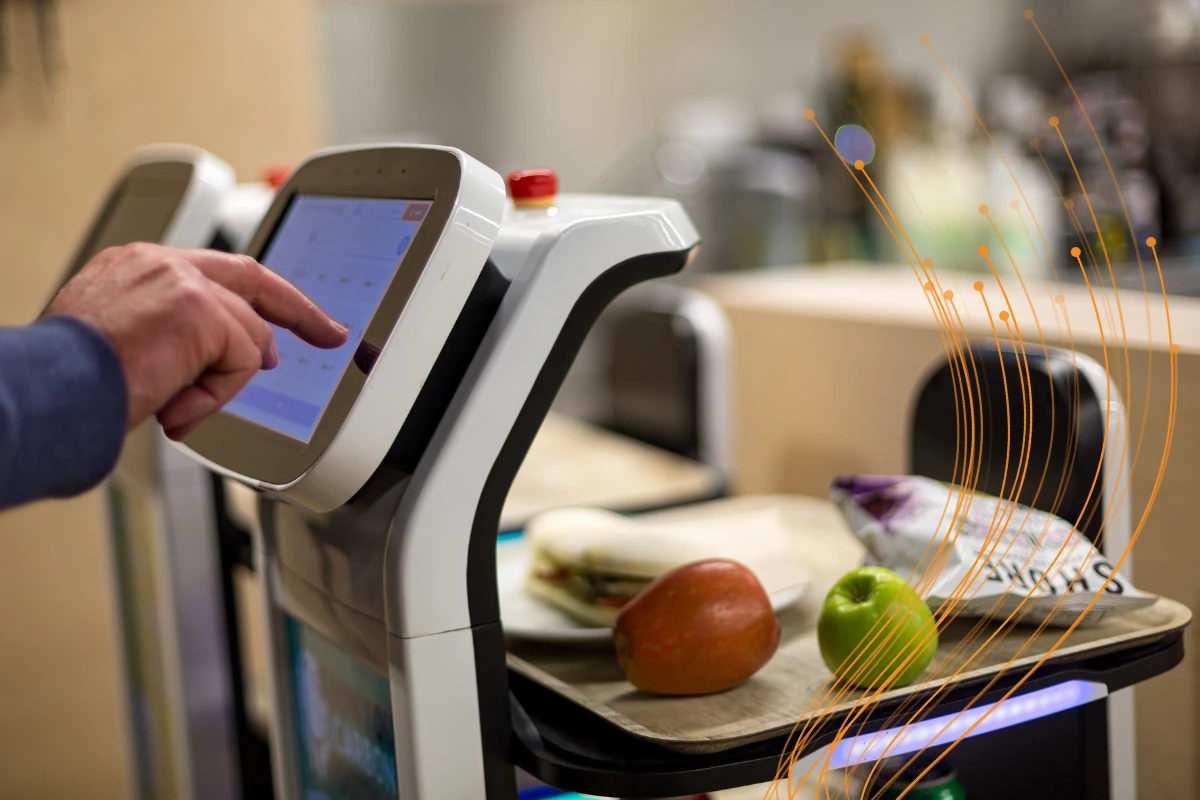Book a Demo
Please fill in the form, and we'll get back to you promptly with the information you need.
To Invest, Or Not to Invest - The EPoS Technology Question

When it comes to selecting the right technology for your business, there are many areas that need to be addressed – especially security, costs, and sustainability. Right at the root of all these questions for any businesses will be the overall return on investment (ROI).
We all know that time is of the essence in the hospitality industry, so let’s get right down to it. The all-important questions you need to ask when it comes to making any technology investment should include:
- How quickly, and how much will this investment return?
- Where can you save on technology investment costs?
- What returns can particular software/hardware bring?
- What areas do you need to look at when assessing ROI?
Costs
Analysing ROI, especially on a smaller scale can be tricky. Corporate, or large-scale hospitality providers often have more expertise within the company, or are able to dedicate time and money to hiring specialists to assess ROI before investing large up-front sums into integrating new technologies. However, for many smaller restaurant, cafe or bar owners this strategy, with its high-cost/investment risk - more often than not - isn’t possible.
One way to save on technology costs would be through renting an EPoS or Self-serve system, or possibly signing up to a trial of a system. This means that you can track increases or decreases in profit, month by month, compared to the cost of your investment. Renting will reduce upfront costs, but also allow the calculations to be simpler through looking at the trends month by month.This enables you to assess whether the technology is the right fit for your business, and whether a bigger investment should be made further down the line.
Speed of Service
The most obvious way you can see ROI is with faster speed of service, which in turn leads to greater footfall, and an increase in customers served - especially during your busy periods. The subsequent increase in income generated should easily cover paying for a system.
This can be clearly demonstrated by the new self-serve technology entering the market. The world is going cashless, and in today’s fast-paced hospitality environment, self-serve counters will become vital. They ensure rapid and seamless service for customers who have come to expect nothing less, they give you the ability to serve the customer a more individual product, and they reduce your production wastage.
Upselling
However often you encourage your employees to offer new products or extras it’s hard to maintain this consistently, and not always much fun for them to do the ‘hard sell’. Self-serve technology means you can programme automatic offers for products using attractive images, allowing customers to make no-pressure decisions in their own time.
Security and Loyalty
It is well known that clock-in/clock-out technology can help improve the efficiency of employee hours, but EPoS systems can also help reduce user fraud by tracking all transactions by each employee.
Easy loyalty schemes, all done by electronic tracking save money and generate return visits. These loyalty schemes and discounts are also fantastic for customers and employees.
Time
With EPoS back office support your investment also frees up time. The ROI can be seen in faster stock-takes, easy to generate reports and other admin costs and time reduced.
The time for set-up of hardware or software is also minimal. By taking advantage of support and training offered by EPoS providers to learn how to use the technology, the time invested from the start is small and can give huge returns.
Waste Management
The bottom line is crucial for all businesses, but ROI doesn’t have to be entirely financial. Many businesses are becoming more and more environmentally conscious for ethical reasons, as well as economic. Waste may be damaging for the environment, but it is also bad for profits. A report published by WRAP UK estimates the cost of food wasted by the UK hospitality and food service sector is estimated at £2.9 billion (2015).*
The issue of waste within the hospitality industry is heating up. For large businesses it’s often hard to accurately track or analyse where, or how much waste is being created, and smaller establishments may struggle to dedicate the time or resources to monitoring where they can be more environmentally efficient. Affordable EPoS technology will help businesses owners to get ahead of this issue – through stock monitoring and the ability to replenish stock more accurately.
So what technology should I be investing in now?
At Lolly we are really driving home the self-serve message and advising businesses with Grab and Go and Coffee Shops to invest in this technology. Missed sales and lost revenue will quickly be eliminated, and your tech investment recouped. ACT NOW and give your customers the best experience by allowing them to self-serve. At the end of the day, more customers during peak trading times will help drive profit and respond to the all-important focus on ROI.
*http://www.wrap.org.uk/food-drink/business-food-waste/hospitality-food-service
Frequently Asked Questions
Related Posts
See all posts
Lolly and Lloyds Launched Pay by Bank System at Open Banking Expo
Lolly, the UK-based hospitality specialist, has collaborated with Lloyds to develop an innovative Pay by Bank system, which was nominated for an award and showcased at the Open Banking Expo in London.

Revolutionising Automation For Hospitality: Paul Markey On Concierge Robots
Concierge robotic technology is designed to enhance the in-store experience while freeing up human staff to focus on more complex tasks, providing a revolutionary approach to automated customer service.

Celebrating Excellence At CUBO Summer Conference 2025
This year’s CUBO Summer Conference, held on Tuesday 10th and Wednesday 11th June at Northumbria University, served as a dynamic platform for sharing best practices, exploring transformative technologies, and celebrating excellence in the Further and Higher Education sector.
Subscribe to our Newsletter.
Subscribe to our newsletter to get a curated summary of our latest insights delivered to your inbox monthly. No sales pitches, no spam — ever.


